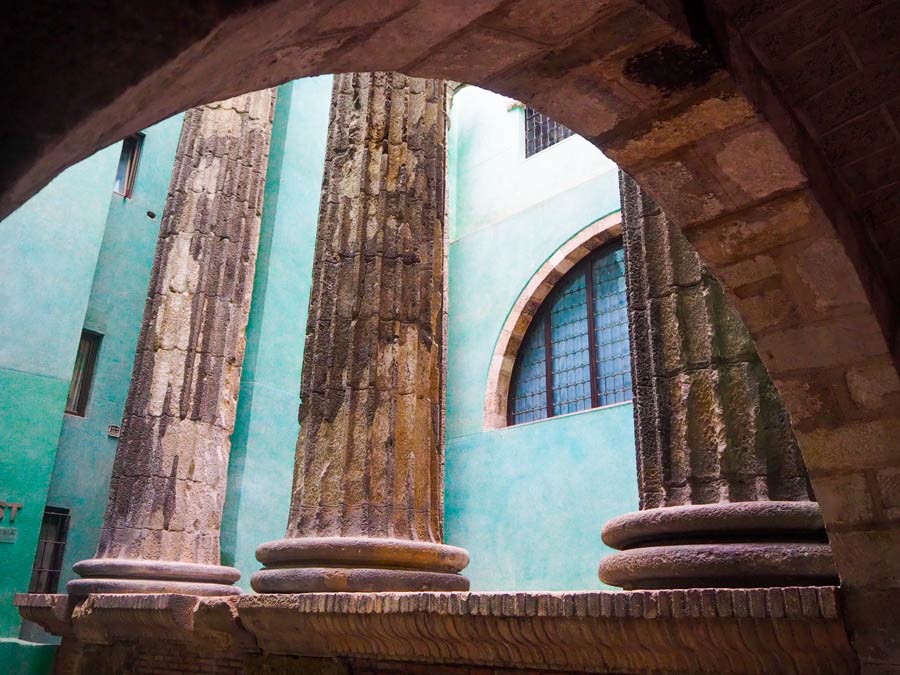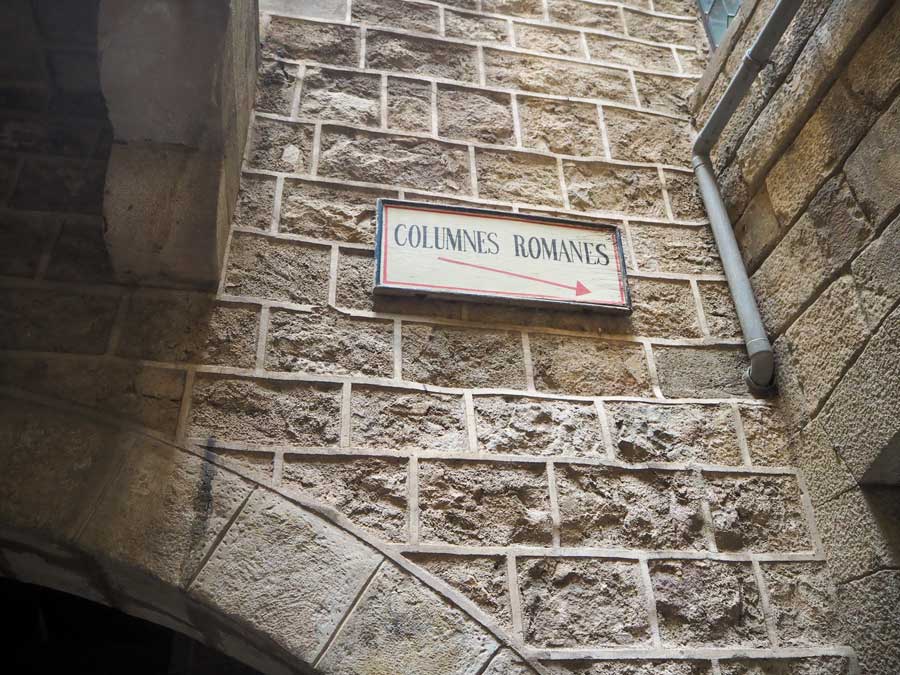Many visitors walk the streets of the Gothic quarter amazed about the history of the city, admiring the most famous buildings and stopping by the must-see spots. But not all of them know about this secret place which is hidden in the heart of the Gothic quarter: the Roman Temple in Barcelona “Temple of Augustus”.
Do you want to know the story of this secret spot and how to get there? Read on to find out…
Temple of Augustus: a Roman temple built in the 1st century BC
This is one of the most amazing parts about walking the streets of this historical area: you get to discover centuries and centuries of history of this city. And it even brings you back to the Middle Ages, as it is in the case of the Temple of Augustus:
- It was built in the late 1st century BC, during the Imperial period in the colony of “Barcino” (the origins of Barcelona).
- It was built at the highest point of a small hill “Mont Tàber” and for over 4 centuries, this Roman temple presided over the city’s forum.
- After losing its function, the Temple of Augustus underwent several transformations but continued to define the physiognomy of the city of Barcelona.
- In the mid-19th century it was finally clarified that it was a Roman temple, probably dedicated to the emperor Caesar Augustus.

Where is this Roman temple in Barcelona located?
You will find the Temple of Augustus at Carrer Paradís, 10. It is actually located at the Centre Excursionista de Catalunya, and it is well indicated at the entrance. You just have to follow the sign “Columnes romanes” at the bottom and then to your right you will see these beautiful historical treasures.

Beautiful places near Temple of Augustus
If you want to keep discovering the city’s history from another point of view, we recommend you to explore these two places which also have many years of history: Cereria Subirà, a candle shop which is the oldest shop in Barcelona (2 minutes walk from the Temple of Augustus) and l’Arca de Barcelona, a vintage atelier with a beautiful family story (3 minutes walk from the Temple of Augustus).
Additional information
Free entrance.
It was named “Cultural asset of national interest” (Bé cultural d’interès nacional) in 1931.
Have you ever been to this Roman temple in Barcelona?

